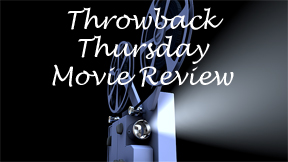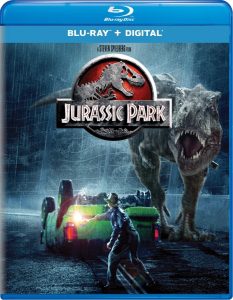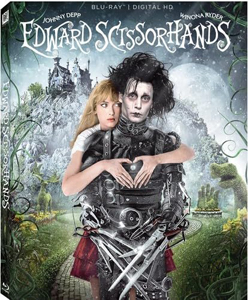Tim Burton is the most idiosyncratic of mass-appeal directors, but his weirdness is only skin deep. This is especially evident in one of his most beloved films, “Edward Scissorhands” (1990), the heartfelt but not remotely deep Christmas bauble he made between his two “Batman” films.
I like it a little more than “Beetlejuice” (1988), his other family friendly (?) movie that at the briefest glance seems too scary for kids. Instead of throwing ideas at the wall and watching several of them slide off like undercooked spaghetti, this entry – co-written with Caroline Thompson – uses the “Frankenstein” story as a firm foundation.
‘Frankenstein’ by way of Burton
I’m not sure if I saw “Edward Scissorhands” back in the day, but it’s one of those movies where it’s easy to think I must have. A few clips (no pun intended) are enough to grasp the whole story about a young man viewed as an outcast because 1) he looks weird, and 2) events are misunderstood by the community.

“Edward Scissorhands” (1990)
Director: Tim Burton
Writers: Tim Burton, Caroline Thompson
Stars: Johnny Depp, Winona Ryder, Dianne Wiest
Considering that the single-layered story is only enough for a short film, it’s remarkable that “Edward Scissorhands” holds one’s attention for 105 minutes. It’s pleasant to listen to a top-shelf Danny Elfman score for that length of time, and to visit this vacation-like Burtonian world.
We enter 1990 by way of the Sixties. In a just-another-day-in-suburbia sequence, pastel-colored cars emerge from pastel garages, taking the husbands to jobs we can assume hold up American values. This is evident from the moral lesson around the dinner table: Patriarch Bill (Alan Arkin) teaches houseguest Edward (Johnny Depp, combining sad eyes and a timid voice with the makeup) that if he finds a briefcase of money lying in the road he should turn it over to the police.
Also winking at suburbia is the gaggle of gossiping housewives, and while Burton doesn’t exploit the comedic potential, Kathy Baker does steal scenes as overly sensualized Joyce. She almost rapes Edward, and nothing really comes of this except to further emphasize that Edward is not typical. As with many Burton films, there are moments but those moments don’t coalesce like they could.
Carving out a strong cast
The performances are a smooth mix of styles, with Arkin almost planting his tongue in his cheek although this isn’t a comedy the way “Beetlejuice” (apparently) is. Bill’s Avon Lady wife, Peg (Dianne Wiest) kick-starts the story by essentially adopting Edward from his castle where he has lived alone for … I’ll guess one to 25 years. He’s a Golem created by Vincent Price’s Dr. Frankenstein equivalent, who dropped dead before he got around to replacing Edward’s scissors with hands.

It’s wild to see Anthony Michael Hall be so different from his Hughesian characters from scant years prior. The actor has the unfortunate situation of being a perfect nerd when skinny and a perfect jerk now that he’s jacked.
Winona Ryder is cast to look sad/pretty while dancing in the snow from Edward’s ice sculpture shavings. I wouldn’t be surprised if Burton built the movie around those two scenes, knowing they’d be accompanied by Elfman’s tearjerking score. I like Wiest well enough, but I was thinking for the first half-hour: “You are going to have Winona Ryder in your Winona Ryder movie, right?”
This film is too sweet-natured and inoffensive to say anything bad about it, and there’s no quibbling with the cast. But it’s also so by-the-numbers, with such expected flourishes, that it’s hard to say anything about it. If you haven’t seen “Edward Scissorhands,” you’ve still seen it.

